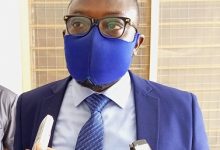
A close-out ceremony was held in Accra yesterday to celebrate successes chalked under the People for Health (P4H) project, aimed at promoting equity in the planning and delivery of quality health services across the country.
Launched in 2016, the project implemented in 20 districts in seven selected regions of the country, was to increase the capacity of civil society, communities and key populations within the society to advocate and demand for accountability, compliance and equity in health service delivery.
Executed by a consortium led by non-governmental organisation (NGO), SEND-Ghana, Penplusbytes, and the Ghana News Agency with funding support from the United States Agency for International Development (USAID), the project focused on thematic areas; malaria, nutrition, maternal and child health, family planning, and HIV/AIDS.
At the event which had the theme; “Showcasing and strengthening volunteerism for equitable health service delivery,” Chief Executive Officer of SEND-GHANA, Siapha Kamara said the project had set out to address issues of stigma and discrimination, lack of logistics, administrative lapses in the health system and misappropriation of funds at the district level among others which negatively impact on access to healthcare.
He said,training and education given to the stakeholders including community health management committees, traditional authorities, faith-based organisations, individuals and support groups in implementing communities, had significantly improved the delivery of health services.
According to Mr Kamara, inadequate funds and resources to promote healthcare delivery at the primary level was a major hindrance to access health services.
“I can bet that in Ghana, we have one of the best human resource but the lack of funds especially at the primary level of healthcare where most vulnerable and poor people access is a major challenge.
There are many Community-based Health Planning and Services (CHPS) compounds were there are no nursing staff due to lack of accommodation, water, weighing machines etc, which are basic things needed to deliver health services.”
Mr Kamara who doubles as Chief of Party of the P4H project called on government to increase budgetary allocation to the health sector and institute measures to ensure allocations at the District assemblies were prudently used to advance quality healthcare.
Dr Stephen Gyasi, a representative of USAID pointed out that from its inception, P4H had supported social accountability strategies, empowering of government agencies, civil society organisations and other entities to improve health service delivery in deprived communities.
According to him, the district citizen monitoring committee approach adopted under the project had built the capacityof local institutions to mobilise and deliver in time financial resources for healthcare delivery.
Dr Gyasi added that activities undertaken under the project such as provision of ambulance services, community water points, among others in some areas not only contributed to improving quality health care in communities of target groups but also complement responsiveness of state actors to the needs of the vulnerable people.
As part of the ceremony, the Tema Metropolitan Assembly and its District Health Management Team were respectively awarded for their outstanding contribution to the success of the project.
BY ABIGAIL ANNOH & EVELYN HARVEY







